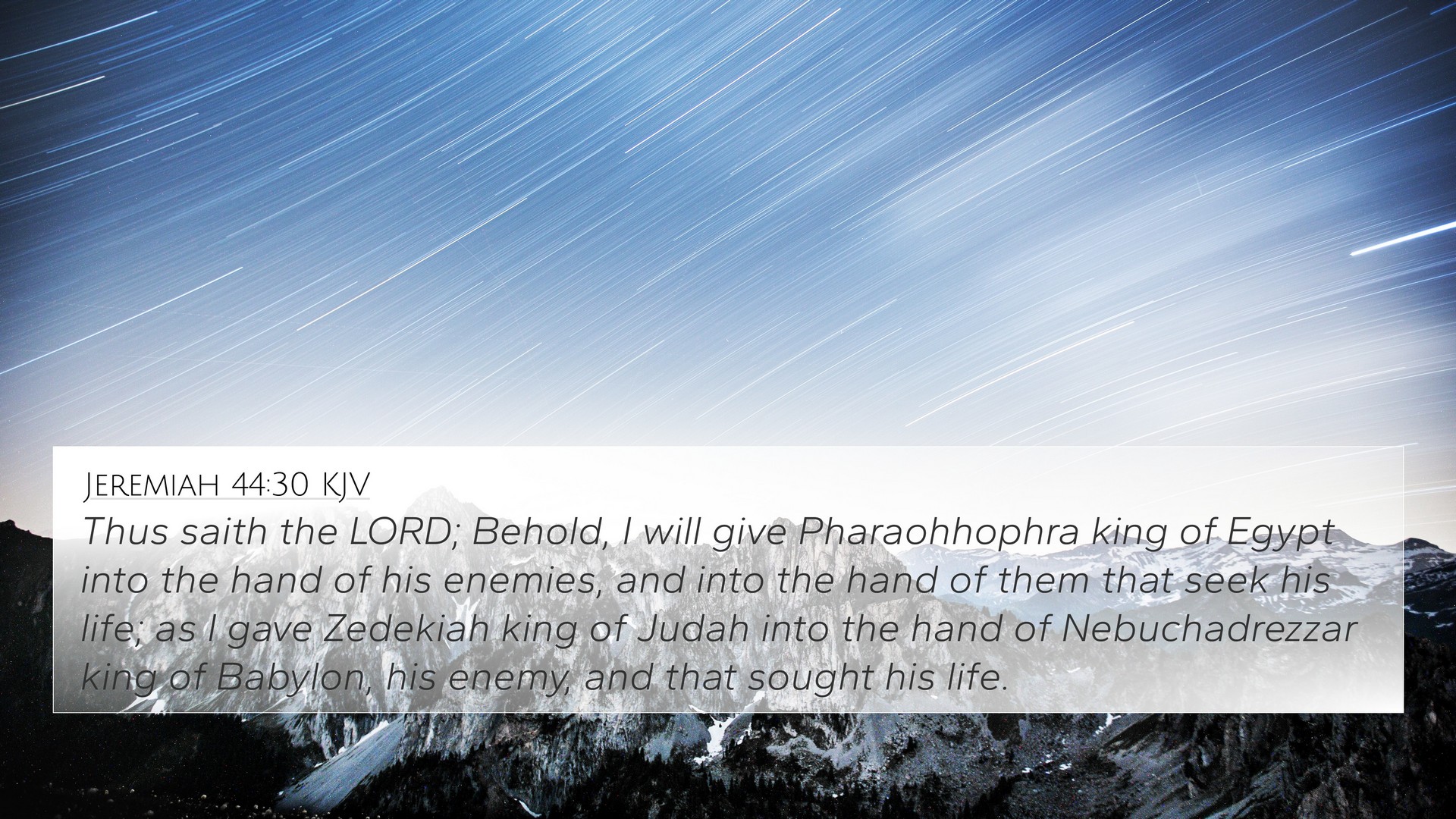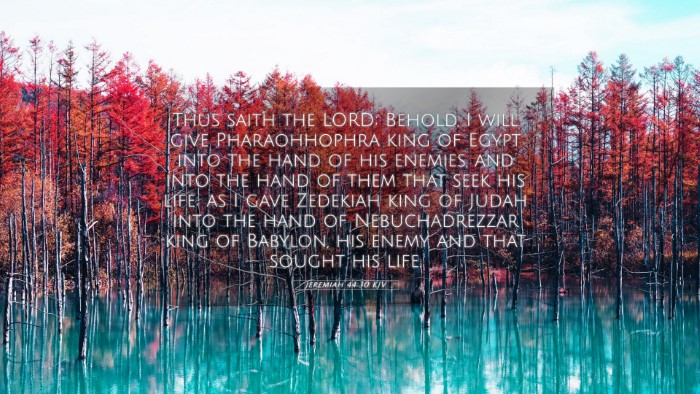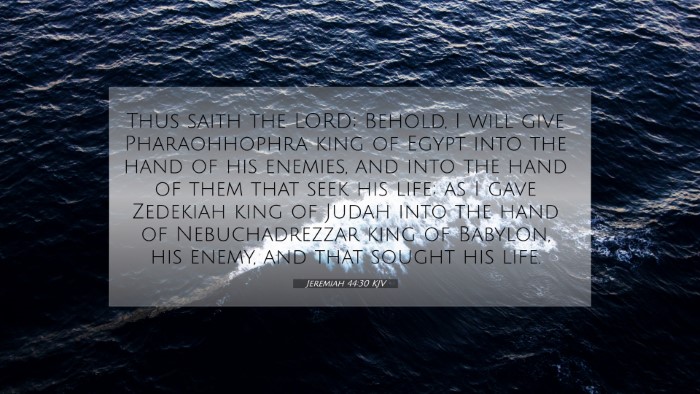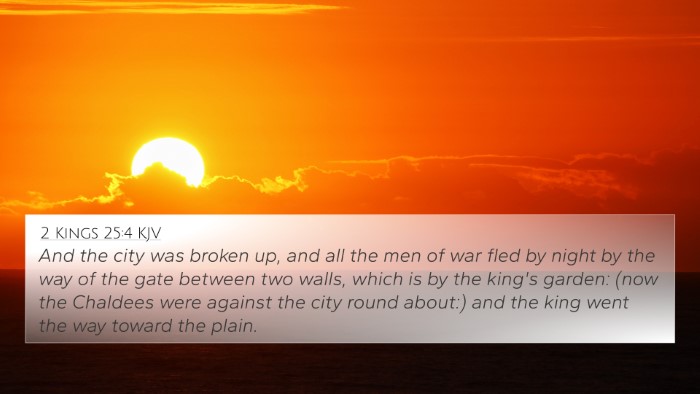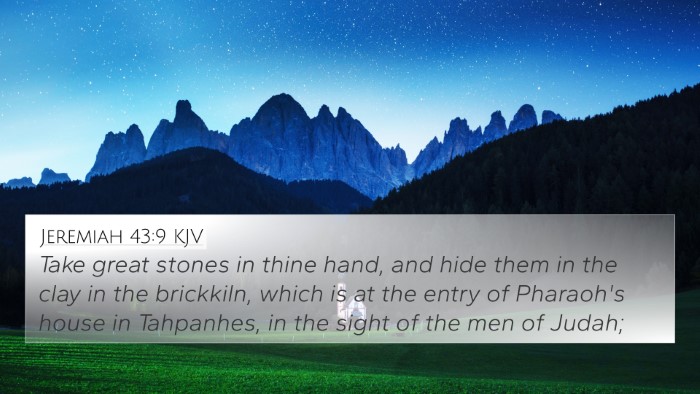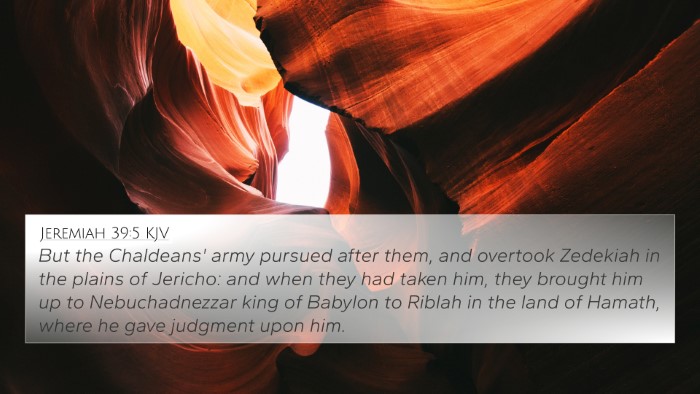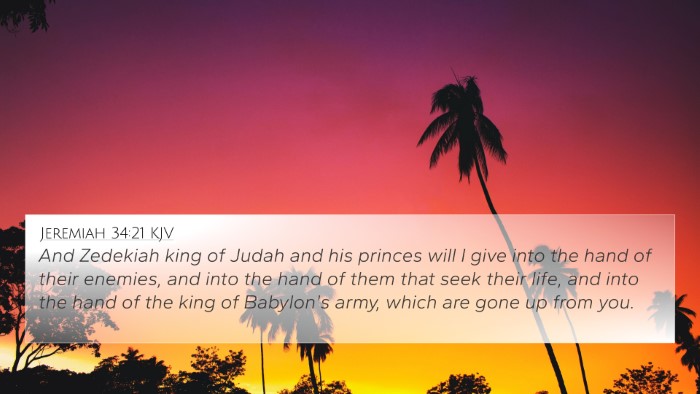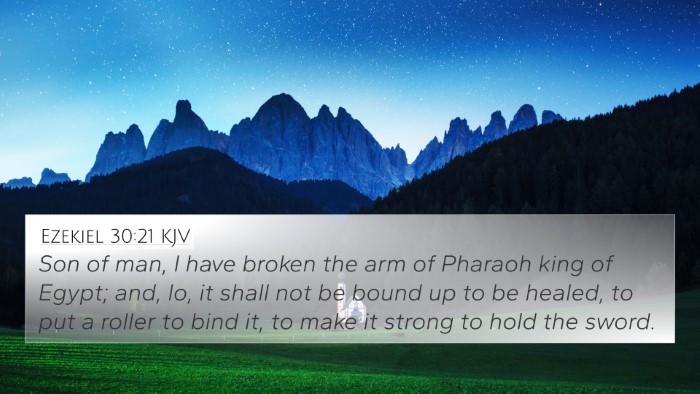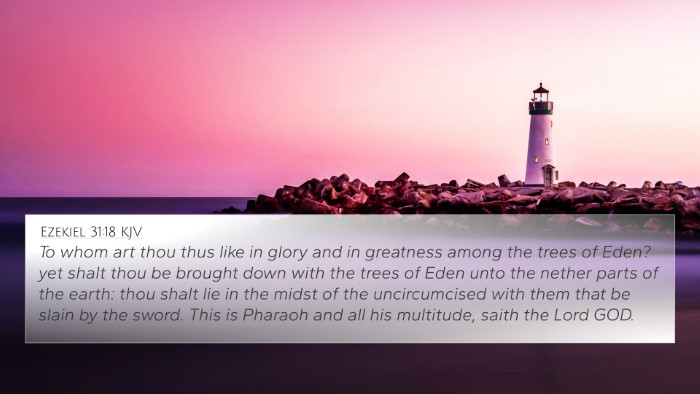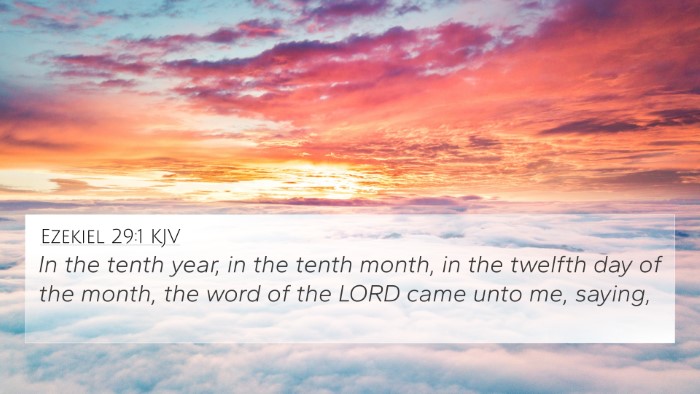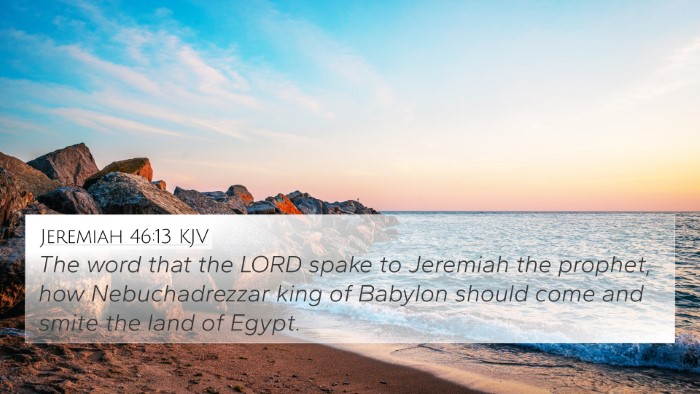Understanding Jeremiah 44:30
Jeremiah 44:30 states: "Thus says the Lord, behold, I will give Pharaoh Hophra king of Egypt into the hand of his enemies, and into the hand of those who seek his life, even into the hand of Nebuchadnezzar king of Babylon." This verse is a stark declaration of divine judgment and prophetic warning about the fate of Pharaoh Hophra.
Summary of Key Insights
- Divine Authority: The verse highlights God's sovereignty over nations and rulers, indicating that no earthly power can withstand His will.
- Judgment Pronouncement: It serves as a warning about impending judgment, where Pharaoh is foretold to face consequences due to his disobedience and idolatry.
- Historical Context: This prophecy is rooted in the historical relationship between Babylon and Egypt, indicating the geopolitical tensions of that time.
Commentary Insights
Various commentaries provide deeper understanding regarding this verse:
Matthew Henry
Matthew Henry outlines the significance of God’s declaration, emphasizing how it affirms God's omnipotent control over human affairs. He notes that Pharaoh Hophra (also known as Apries) would not be able to escape the inevitable consequences of political and spiritual failure, reflecting God’s ability to overturn the mightiest of rulers.
Albert Barnes
Albert Barnes interprets this passage as a demonstration of God’s commitment to His prophecy and the reality of divine retribution. He suggests that this verse acts as a means to motivate the people of Judah, reminding them that their safety lies not in alliances with Egypt but in obedience to God's will.
Adam Clarke
Adam Clarke elaborates on the historical implications of this verse. He discusses the downfall of Hophra at the hands of contrary forces, viewing this as a symbolic lesson of trust in God versus reliance on human powers. He connects this defeat to God’s promises regarding the safety and security of His people when they are faithful.
Bible Verse Cross-References
Understanding Jeremiah 44:30 can be enhanced by examining its connections with other scripture. Here are 10 significant cross-references:
- Jeremiah 46:2: Provides context regarding the judgment on Egypt and its leaders.
- Ezekiel 29:19: Further illustrates the fate of Pharaoh and the Egyptians in the grand narrative of God’s judgment.
- Isaiah 36:6: Describes the political dynamics involving Egypt and Judah.
- Jeremiah 37:5: Highlights the involvement of Egypt in the affairs of Israel during siege.
- Daniel 2:21: Notes that God can set kings up and take them down, reinforcing divine sovereignty over nations.
- 2 Kings 24:7: Mentions Babylon's ascendance, establishing a thematic connection to Jeremiah's prophecies.
- Exodus 14:13-14: Reminds the reader of Egypt's past as an oppressive force but contrasts it with the present prophetic warning.
- Psalm 146:3: Warns not to put trust in rulers, resonating with Jeremiah’s prophetic message.
- Micah 4:10: Addresses the fate of the nations, aligning with the theme of divine judgment.
- Matthew 24:6-7: Connects the theme of wars and political turmoil with signs of the times, echoing the warnings found in Jeremiah.
Thematic Bible Verse Connections
This verse serves as a reminder of several key themes found throughout the Bible that relate to God's judgment and political powers:
- God's Sovereignty: A recurring motif, seen in verses like Psalms 47:2.
- Judgment against Idolatry: Reflected in Amos 2:4.
- Reliance on God: Emphasized in Proverbs 3:5-6.
Cross-Referencing Biblical Texts
Utilizing tools for Bible cross-referencing allows for a comprehensive understanding of scripture, illuminating connections that enhance study:
- Bible Concordance: Provides key terms to identify related verses swiftly.
- Bible Cross-Reference Guide: Helpful in pinpointing thematic similarities.
- Detailed Cross-Reference between Gospels: Encourages readers to find parallels across the New Testament.
Conclusion
In summary, Jeremiah 44:30 serves as an essential verse to understand both God’s impending judgment and the historical context of His interactions with nations. By engaging in cross-referencing and exploring connections, one can appreciate the rich thematic elements woven throughout scripture.
